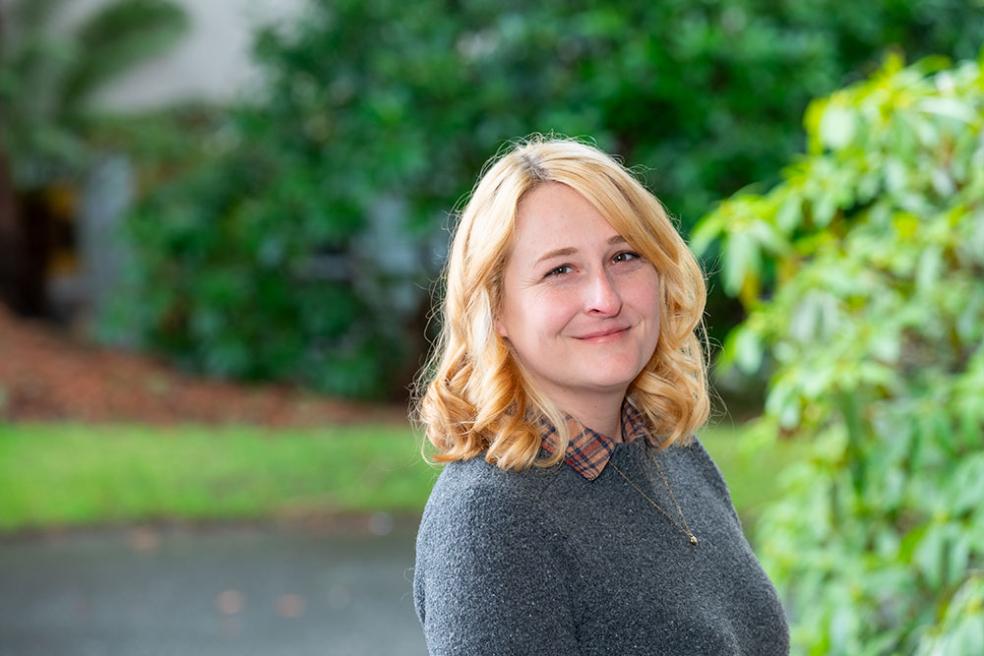
Megan Watson, the newly hired coordinator, will oversee the effort in compliance with the Native American Graves Protection and Repatriation Act (NAGPRA), state and federal laws that require institutions to return cultural items.
Humboldt is in possession of more than 23,000 individual cultural items that are subject to the law. About 20,000 objects are individual pieces of debitage, the byproduct produced during the making of stone tools. Humboldt does not have any human remains.
Cal Poly Humboldt fully supports NAGPRA, and this permanent, full-time position is a continuation of the University’s efforts to repatriate items from the collection to Native American Tribes. University staff have been in communication with Tribes associated with the majority of objects in the collections.
Humboldt researchers have worked directly and consulted with Tribes since the 1990s on research and excavations involving Tribal cultural items. Humboldt continues to collaborate closely with Tribes. Previously, the duties of coordinating with Tribes and complying with NAGPRA were shared by faculty who held other positions as well.
Watson has worked as an archaeologist in cultural resource management in the private sector for the last 12 years, and interned in San Francisco State’s NAGPRA lab during her undergraduate studies. “That experience shaped my career and the way I work with Tribes,” she says. “I’m honored to be part of the repatriation process. It’s one of the most important things we can do in this discipline.”
The long term goal, Watson explains, is 100% repatriation of the cultural items that Humboldt currently possesses. Ultimately Native Tribes will decide what they want to do with their cultural items, with Humboldt’s help. Not every object may be physically transferred, as some Tribes may not have the facilities to store them and may prefer that Humboldt continue to house them in a permanent setting.
“It’s all about the Tribes’ wishes,” Watson says. “As archaeologists, working with Tribes is completely vital to what we do.”
In the short term, Watson is connecting with Tribes to continue the repatriation process. “A lot of good work has already been done at Humboldt, including consultation with Tribes,” she explains.
Now, with a dedicated position, that work should progress more consistently. She is also coordinating the development of a campus NAGPRA committee, a process that is overseen by the Native American Heritage Commission. The committee will oversee the process and her work.
The State and The California State University are reaffirming a commitment to repatriation, Watson says. Humboldt is one of six CSU campuses to have hired a dedicated NAGPRA coordinator so far.
In the era during her previous NAGPRA internship, Watson says she didn’t know if 100% repatriation would ever be possible. “There were a lot of barriers,” she says. “People are taking it much more seriously now. There’s a bright light at the end of the tunnel. Cal Poly Humboldt is wholly committed to this process."